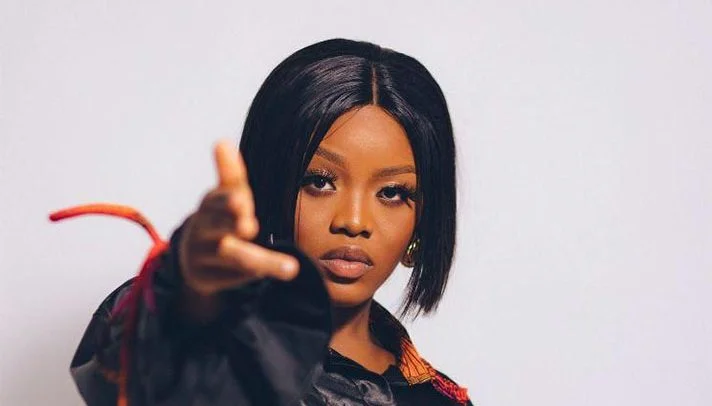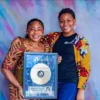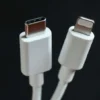Today, we analyze a variety of internal and external considerations when selecting these top (not-so-new) female performers who consistently boost the worldwide appeal of Ghanaian music while also placing Ghana on the global map.
Many males in the Ghanaian music industry get away with a lot of things that women just can’t. Whatever the cause, ladies may have to work twice as hard as their male counterparts to achieve the same level of magnificence.
Female Musicians Breaking The Bias In Ghanaian Music
Today, we bring to you five female Ghanaian artists you should be watching on the world stage, as objectively as possible.
CINA SOUL
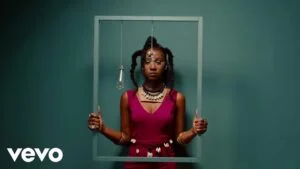
Christie Quincyna Quarcoopome, better known by her stage name Cina Soul, is a Ghanaian soul singer-songwriter and recording artist. Her first foray into music was when she competed in the Vodafone Ghana Music Icons in 2014, where she placed third.
Cina Soul’s first album, ‘Metanoia,’ was launched in 2016, and it was this album that catapulted her to fame, with tracks like ‘Awo’ and ‘Julor,’ garnering her a position on the charts.
The seductive singer has shown a desire to market Ghanaian-Ga culture to the rest of the globe. More about her sound may be found in her ‘ojorley’ album.
Her commitment to representing and expressing Ghana’s rich story via music is admirable.
SEFA
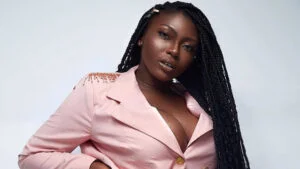
Sefadzi Abena Amesu, also known as Sefa, is probably one of Ghana’s most sought-after female artists. The “afro-pop hitmaker” is now causing a stir in Ghanaian music. The lovely and gifted singer-songwriter is here to stay in the music business.
Her skills and distinct style of music have helped her attract a large number of fans not just in Ghana but all around the globe, particularly with her Echoke and Fever collaboration with Sarkodie.
Sefa has a wonderful personality, a terrific fashion sense, and a strong desire to put Ghana on the globe. The singer is signed to DBlack’s “Black Avenue Music” and is now part of Sony’s music publishing family.
GYAKIE
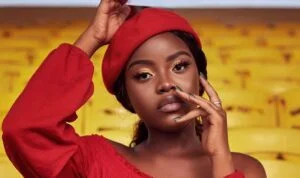
Born into a family of musicians, Ghanaian singer Jackline Acheampong, better known as Gyakie in the entertainment industry, is carrying on a tradition of unabashedly African musicianship.
She is the daughter of Ernest ‘Owoahene’ Nana Acheampong, a highlife music icon from the 1980s, but she has found her own voice as a singer and songwriter, releasing her first EP “Seed” in August.
The songbird, as she is popularly known, is signed to the Ghanaian musical company “Flip the music.”
HAJIA 4 REAL
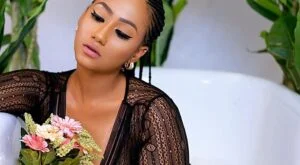
It came as a complete surprise to everyone when Hajia 4 Real started doing music. Her breakthrough into the music industry was understated. Although there were varied reactions, she did not let it stop her from releasing additional songs.
Her shift from influencer, entrepreneur, and fashionista to full-time music fan has been seamless and inspiring.
Hajia 4 Real is picky about her sound and everything she releases. As a result, her music videos and productions are of high quality. She is now one of the few artists who invest thousands of dollars in her music videos.
“Hajia 4 Real is working hard to achieve her Grammy objective, and there is no going back,” she continually emphasizes.
The future for female artists in Ghana is bright, but it can only become brighter if we all work together to encourage our ladies to get out there to make a difference, making the Ghanaian music business viable and appealing to investors for our mutual benefit.
BLEAU
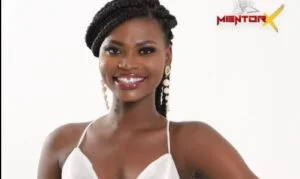
Bleau has a powerful voice that is rich and unwavering. She grew up listening to a potpourri of sounds from so many performers all over the globe, having been born and reared in Ghana’s northern region.
Bleau’s work is deft and diverse, as seen by her most recent hit, DownTown, off her forthcoming EP. Through her music, Bleau is providing a safe atmosphere where individuals can be themselves and be happy. This is unquestionably the best option. Bleau is defying industry stereotypes and embarking on a mission to put Ghanaian music on the globe
Ghana’s male musicians have excelled in the music business, demonstrating their quality, time and time again over the previous decade and breaking several African records.
Female artists in Ghana, on the other hand, seem to be underappreciated. Perhaps it’s a societal assumption that men artists have an advantage in the profession.

